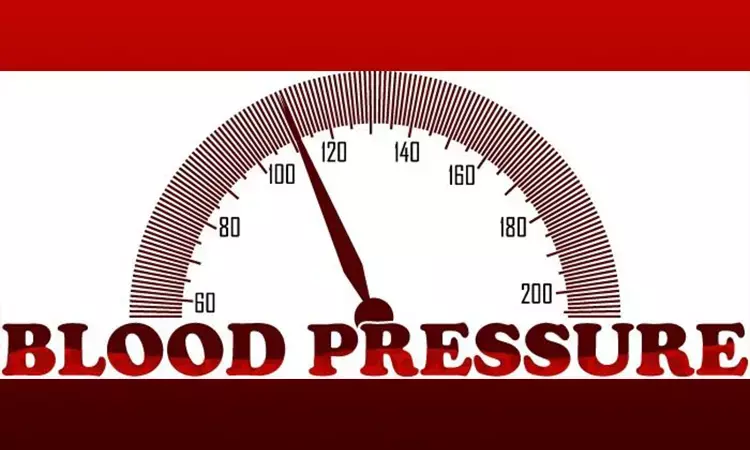- Home
- Medical news & Guidelines
- Anesthesiology
- Cardiology and CTVS
- Critical Care
- Dentistry
- Dermatology
- Diabetes and Endocrinology
- ENT
- Gastroenterology
- Medicine
- Nephrology
- Neurology
- Obstretics-Gynaecology
- Oncology
- Ophthalmology
- Orthopaedics
- Pediatrics-Neonatology
- Psychiatry
- Pulmonology
- Radiology
- Surgery
- Urology
- Laboratory Medicine
- Diet
- Nursing
- Paramedical
- Physiotherapy
- Health news
- Fact Check
- Bone Health Fact Check
- Brain Health Fact Check
- Cancer Related Fact Check
- Child Care Fact Check
- Dental and oral health fact check
- Diabetes and metabolic health fact check
- Diet and Nutrition Fact Check
- Eye and ENT Care Fact Check
- Fitness fact check
- Gut health fact check
- Heart health fact check
- Kidney health fact check
- Medical education fact check
- Men's health fact check
- Respiratory fact check
- Skin and hair care fact check
- Vaccine and Immunization fact check
- Women's health fact check
- AYUSH
- State News
- Andaman and Nicobar Islands
- Andhra Pradesh
- Arunachal Pradesh
- Assam
- Bihar
- Chandigarh
- Chattisgarh
- Dadra and Nagar Haveli
- Daman and Diu
- Delhi
- Goa
- Gujarat
- Haryana
- Himachal Pradesh
- Jammu & Kashmir
- Jharkhand
- Karnataka
- Kerala
- Ladakh
- Lakshadweep
- Madhya Pradesh
- Maharashtra
- Manipur
- Meghalaya
- Mizoram
- Nagaland
- Odisha
- Puducherry
- Punjab
- Rajasthan
- Sikkim
- Tamil Nadu
- Telangana
- Tripura
- Uttar Pradesh
- Uttrakhand
- West Bengal
- Medical Education
- Industry
BP drugs lower heart attack, stroke risk in people with Normal BP also: ESC update

Blood pressure-lowering medications can help prevent heart attacks and strokes – even in people with normal blood pressure, based on new research from the BPLTTC trial.
Sophia Antipolis, France: Researchers have found in largest study ever that Blood pressure medication can prevent heart attacks and strokes – even in people with normal blood pressure. The study revealed that each 5 mmHg reduction in systolic blood pressure lowered the relative risk of major cardiovascular events by about 10%.This implies that Blood pressure-lowering is even more beneficial than previously thought.
That's the finding of late breaking research presented in a Hot Line session today at ESC Congress 2020.
Blood pressure drugs should be considered as an effective tool for reducing cardiovascular risk when an individual's probability of having a heart attack or stroke is elevated regardless of blood pressure level.
"Greater drops in blood pressure with medication lead to greater reductions in the risk of heart attacks and strokes," said principal investigator Professor Kazem Rahimi of the University of Oxford, UK. "This holds true regardless of the starting blood pressure level, in people who previously had a heart attack or stroke, and in people who have never had heart disease."
"The fact that the relative effects are similar for everyone does not mean that everyone should be treated," he added. "This decision will depend on an individual's likelihood of suffering cardiovascular disease in the future – there are a number of risk calculators health professionals can use. Other factors to consider are the potential for side effects and the cost of treatment."
There has been controversy about whether pharmacological blood pressure lowering is equally beneficial in people with versus without a prior heart attack or stroke, and when blood pressure is below the threshold for hypertension (typically 140/90 mmHg). Evidence from previous studies has been inconclusive, leading to contradictory treatment recommendations around the world.
This was the largest – and most detailed – study ever conducted to examine these questions. The researchers combined data on individuals who had participated in a randomised clinical trial and conducted a meta-analysis. The study included 348,854 participants from 48 trials.
Participants were divided into two groups: those with a prior diagnosis of cardiovascular disease and those without. Each group was divided into seven subgroups based on systolic blood pressure at study entry (less than 120, 120-129, 130-139, 140-149, 150-159, 160-169, 170 and above mmHg).
Over an average four years of follow-up, each 5 mmHg reduction in systolic blood pressure lowered the relative risk of major cardiovascular events by about 10%. The risks for stroke, ischaemic heart disease, heart failure and death from cardiovascular disease were reduced by 13%, 7% and 14% and 5%, respectively.
Neither the presence of cardiovascular disease nor the level of blood pressure at study entry modified the effect of treatment.
Professor Rahimi said: "The decision to prescribe blood pressure medication should not be based simply on a prior diagnosis of cardiovascular disease or an individual's current blood pressure. Rather, blood pressure medication should be viewed as an effective tool for reducing cardiovascular risk when an individual's probability of having a heart attack or stroke is elevated."
Source- ESC Congress 2020
Dr Kamal Kant Kohli-MBBS, DTCD- a chest specialist with more than 30 years of practice and a flair for writing clinical articles, Dr Kamal Kant Kohli joined Medical Dialogues as a Chief Editor of Medical News. Besides writing articles, as an editor, he proofreads and verifies all the medical content published on Medical Dialogues including those coming from journals, studies,medical conferences,guidelines etc. Email: drkohli@medicaldialogues.in. Contact no. 011-43720751


